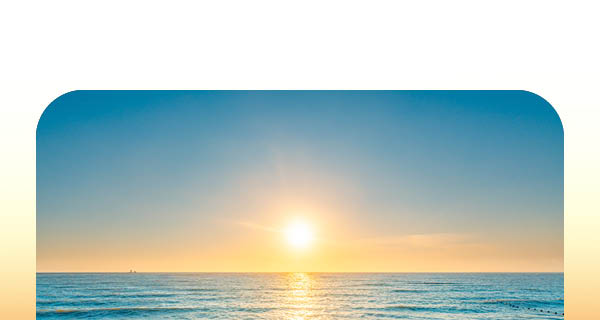“Achieving goals,” “setting goals,” “reaching objectives,” and “self motivation” are phrases which burst from the covers of thousands of books. Whether you’re looking for a way to maximize your potential and your time, or to discover a sense of purpose in a seemingly purposeless life, you can find countless books, many of which feature shiny-faced executives exuding purpose, power and focus.
Now, picture this: it’s 10 a.m. on a weekday morning and a woman, an executive, is lying in her bed when she’s supposed to be at her desk. The peculiar thing is that she’s read these go-getter books, has maximized, motivated and achieved. Strangely enough, these titles have not, in fact, stimulated her to action, but only served to bury her, flatten her, glue her, paralyzed, to her bed.
Now, let’s jump back to 19th century New England. The lauded poet Walt Whitman, whose famous poem “Leaves of Grass” is still read in high schools, colleges and universities, smilingly wields a blade of grass between his teeth, proclaiming the power of such seemingly slothful activities as swimming, singing and lounging, as seen in a stanza from his famous poem which reads “I lean and loaf at my ease.”
Now one could certainly not accuse Walt, whose poems have been translated into every language imaginable, and whose work is considered some of the greatest ever produced, of being inactive or unmotivated. In fact, Walt saw success in his lifetime, something not terribly common for poets, and in addition to his literary successes he worked as a nurse, helping the most debilitated of cases. It’s also worth mentioning that both in his poetry and in his public persona he exuded an attitude of blissfulness, contentment and an inexhaustible joy for living.
So, then, could it be that old Walt’s idea of leaning, lounging and loafing is more likely to increase productivity, not to mention happiness, then all of the goal-setting and self-motivation techniques imaginable?
Many psychologists, spiritual practitioners, Zen Buddhists and even mainstream groups seem to think so. In fact, both CNN and WikiHow feature articles not only praising the power of “doing nothing,” but giving step-by-step instructions for learning how to do nothing, with the paradoxical outcome of actually making a person more productive than your run-of-the-mill one-armed paper-hanger!
Some of the steps recommended by these sites include “banishing the guilt,” the pressure constantly propelling us to do something, “taking a walk in nature,” and “sitting and breathing.”
However, according to the website zenhabits.com, one should “start small,” because, after all, feeling pressure to excel at doing nothing is sort of counterproductive, right?
Beginning with 5-10 minutes a day of a simple breathing exercise or a peaceful walk in nature, inhaling and tasting the aromas and feeling the air cooling or warming your skin, is just the right amount of nothing to not only get you to do a lot of something, but to do so in a healthier, happier way.




5 thoughts on “The Paradoxical Power of Nothing”
Wow! I appreciated the comments on this article. I am empathic as well & have felt the guilt about not doing anything. Of course the guilt can come from others in my life fueling this and assume you should be doing something by asking ‘what are doing today?’ Then I feel it necessary to rattle off a list of what I am doing today, albeit maybe sarcastically sometimes: at 10:15 I am going to take a shower then walk to the livingroom…..I do not use being empathic as an excuse, but there are just some days that I do not feel that the feelings going on are my feelings. I guess distinguishing between them can be difficult in itself. I do find being in nature listening to the birds sing, sitting in sunspots whether in my car at a commuter parking lot either journaling or reading a book therapeutic & necessary. Thanks all! 😀 Fuzzies!
Balanced D
One more thing, I have found that Yoga is so relaxing for myself as it is for everyone, Its so important that you have balance, I recomend one try Yoga, I love it!
Blessings and Big Hugs!
Jacqueline x9472
Hi Nicole,
Oh as we live in this fast and seeming faster paced society, how this truly rings true, my son who has a small family, works full time, just found himself with extra time on his hands due to finishing his doctor-it, has expressed how difficult it is to just relax, just enjoy the his family with-out always being on the go.
Clearing our minds, relaxing our bodies, simply breathing can be the biggest accomplishment that I have to admit I have to work on,
Blessings and Big Hugs!
Jacqueline x9472
Thank you for this article, Nicole! I’m divorced, living on my retirement now essentially although I’m too young to retire, and I know that some friends and relatives have wondered how I can do this. I even sense a bit of resentment occasionally so I feel guilty sometimes, but feel worse when I have to go into town and be in rush hour traffic. I’m enough of an empath that I feel other people’s stress and anger and I have to work at not being uncomfortable. I’m pleased to learn more about Walt Whitman from your article, never knew he was a nurse, how cool! My Buddhist friends and a few psychics I’ve read with have applauded the benefits of meditation. Too many people live in the fast lane and never slow down.
I agree 100% with this article……..as a professional psychic, I’ve found that a simple form of relaxation is the best stress reliever ever….and actually empowers me to be more productive later on.
I practice a form of zen type mediatation where I clear my mind of absolutely everything…..I endorse the tips at the end of this article, …they work for me anyway……and have worked for many years now.
Everybody is indeed different, but if what you are doing isn’t working, then you might want to consider giving the advice given in this article some thought and trying out the simple tips given.
Blessed Be )O(
Gina Rose ext.9500